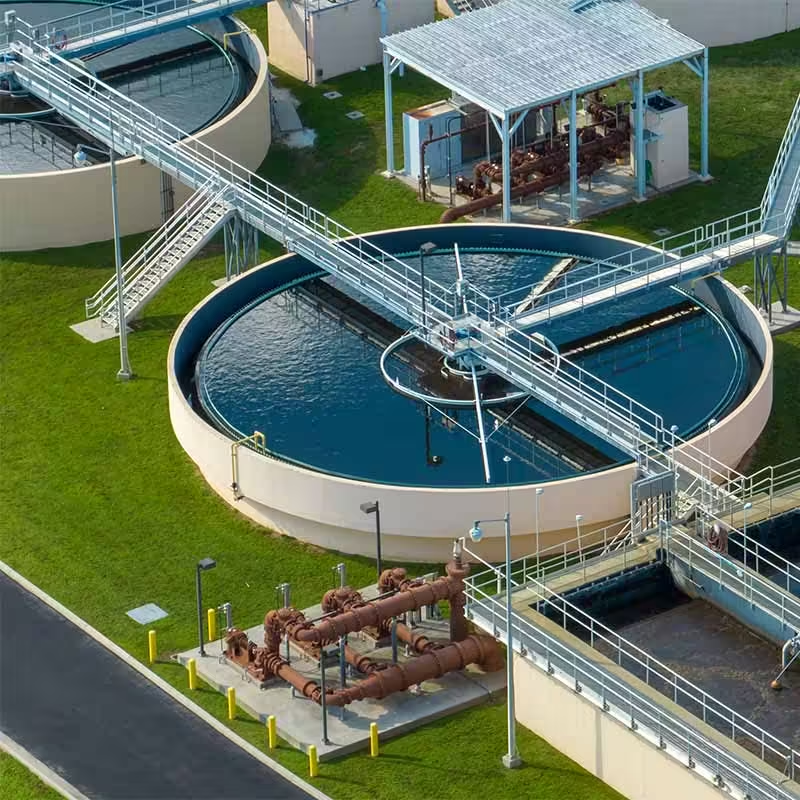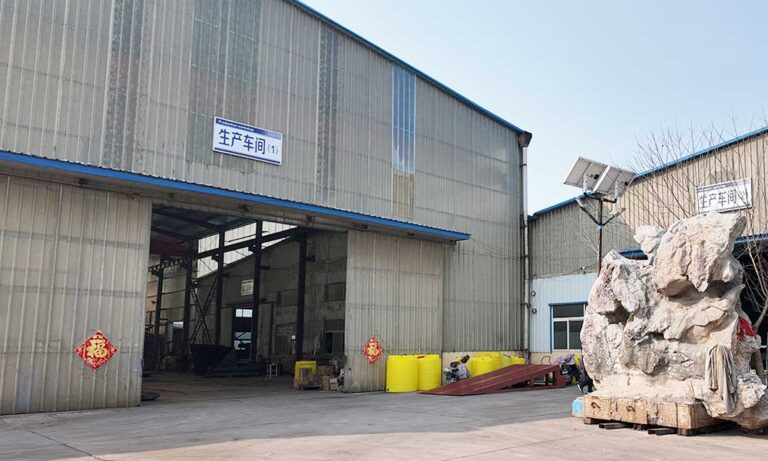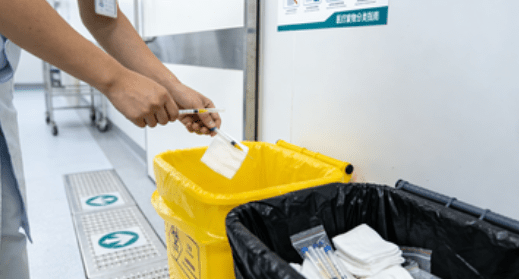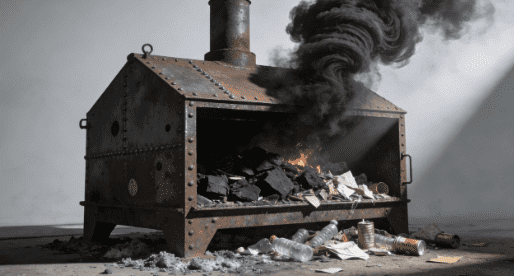Table of Contents
Introduction

As urban populations continue to grow, managing waste and pollution has become a significant challenge. One of the most pressing environmental concerns in cities is the treatment of food waste water, which has been increasingly recognized as a crucial component of urban waste management. Food waste water treatment not only addresses pollution but also contributes to sustainable water management practices in cities. In this blog, we will explore the future of food waste water treatment in urban areas, examining emerging technologies, the importance of effective treatment systems, and the role of companies like Shandong Lushun Environmental Technology Co., Ltd. in driving innovation in the field.
As cities continue to expand, the demand for efficient waste water treatment systems becomes critical. Food waste, being rich in organic matter and grease, can have severe environmental impacts if not properly treated. This is where food waste water treatment equipment plays a key role. With advancements in technology, there is potential for cities to adopt more effective, cost-efficient, and environmentally-friendly solutions.
1. The Growing Need for Food Waste Water Treatment in Urban Areas
Urban areas generate a significant amount of food waste, much of which is sent to landfills or disposed of without proper treatment. According to recent studies, food waste accounts for a considerable portion of the wastewater produced in cities. The improper disposal of food waste can lead to pollution, the contamination of water bodies, and a decline in overall environmental health.
Food waste water, which includes organic matter, grease, and suspended solids, requires specialized treatment processes to ensure safe disposal or reuse. Cities with large food production industries or high population densities must invest in effective food waste water treatment solutions to mitigate these risks.
The Impact of Food Waste on the Environment
Food waste water is often rich in organic matter and contaminants that can severely affect water quality. If untreated, these pollutants can:
- Increase biochemical oxygen demand (BOD) in water bodies, leading to oxygen depletion.
- Contribute to eutrophication, which causes excessive growth of algae and depletes oxygen levels.
- Introduce harmful pathogens and chemicals that can contaminate drinking water sources.
Efficient food waste water treatment systems are essential in preventing these negative effects, ensuring that treated water is safe for discharge or even reuse in industrial or agricultural applications.
2. Key Technologies in Food Waste Water Treatment
Modern food waste water treatment systems have evolved to incorporate several advanced technologies that offer improved efficiency and lower environmental impact. Among the key technologies in food waste water treatment are:
1. Three-Stage Treatment Process
The three-stage treatment process is a common approach in food waste water treatment systems. It typically consists of:
- Pretreatment: In this stage, large solids, grease, and other contaminants are removed from the wastewater through physical processes such as screening and settling.
- Biochemical Treatment: Biological processes are employed to break down organic matter using microorganisms. This stage helps reduce the chemical oxygen demand (COD) of the wastewater.
- Membrane Filtration: Membrane filtration technology, such as ultrafiltration and reverse osmosis, is used to further purify the water by removing smaller particles and dissolved substances. This process ensures high-quality treated water.
2. Intelligent Control Systems
Modern food waste water treatment systems integrate intelligent control technology to optimize the treatment process. These systems monitor the quality of the wastewater, adjust treatment parameters in real-time, and ensure that the water meets the required discharge or reuse standards.
Shandong Lushun Environmental Technology Co., Ltd. plays a vital role in the development of such systems, integrating pretreatment, biochemical treatment, and membrane filtration to provide comprehensive solutions for food industry wastewater treatment. The company’s equipment is designed for low energy consumption and easy maintenance, making it ideal for urban food waste water management.
3. The Role of Shandong Lushun Environmental Technology Co., Ltd. in the Future of Food Waste Water Treatment

At Shandong Lushun Environmental Technology Co., Ltd., we understand the importance of sustainable water treatment practices, especially in urban areas with high food waste volumes. Our food waste water treatment equipment is built to efficiently remove organic matter, grease, and suspended solids, using a three-stage treatment process that ensures clean discharge or water reuse. With intelligent control systems integrated into our equipment, we provide innovative, cost-effective solutions for urban food waste water management.
Our solutions aim to address the environmental challenges posed by food waste water, helping to reduce pollution and promote greener production practices. By investing in advanced treatment systems, we enable cities to manage their food waste more efficiently, turning waste into a valuable resource.
4. The Future of Food Waste Water Treatment in Urban Areas
The future of food waste water treatment in urban areas is set to be shaped by several key factors, including technological advancements, regulatory changes, and the push towards sustainability.
1. Adoption of Circular Economy Practices
In the coming years, cities will increasingly adopt circular economy principles, where waste is minimized, and resources are reused. Food waste water treatment will play a central role in this transformation. By treating and reusing food waste water, cities can reduce their reliance on freshwater resources and recycle valuable nutrients back into the system.
2. Increasing Automation and AI Integration
The integration of artificial intelligence (AI) and machine learning in food waste water treatment systems will allow for better monitoring, process optimization, and predictive maintenance. This will enhance the efficiency and reliability of treatment plants, ensuring that wastewater is treated to the highest standards.
3. Emphasis on Energy Efficiency
Energy consumption is a major consideration for wastewater treatment facilities. In the future, the focus will be on developing energy-efficient systems that can treat food waste water with minimal energy use. Technologies such as biogas production from organic waste and the integration of renewable energy sources will become more common in food waste water treatment systems.
5. Comparison Table: Key Features of Modern Food Waste Water Treatment Systems


| Feature | Traditional Treatment Systems | Modern Treatment Systems (Shandong Lushun) |
|---|---|---|
| Stages of Treatment | Simple physical and chemical processes | Three-stage process: pretreatment, biochemical, membrane filtration |
| Energy Consumption | High, with limited energy-saving methods | Low energy consumption, optimized for efficiency |
| Maintenance | Requires regular manual interventions | Easy maintenance with automated control systems |
| Technology | Basic mechanical filtration | Intelligent control systems for real-time monitoring and optimization |
| Water Reuse Capability | Limited reuse options | Capable of discharging or reusing treated water for various applications |
| Suitability | General industrial use | Specifically designed for food industry wastewater |
Conclusion
The future of food waste water treatment in urban areas is incredibly promising, driven by the need for sustainable practices and technological innovation. As cities face growing challenges in managing food waste and wastewater, the adoption of advanced treatment systems will be crucial. Companies like Shandong Lushun Environmental Technology Co., Ltd. are at the forefront of this transformation, providing cutting-edge solutions that ensure effective and sustainable food waste water treatment.
With the continued development of intelligent systems, energy-efficient technologies, and circular economy practices, we can expect significant improvements in urban water management. By choosing the right equipment and technologies, cities can not only reduce environmental pollution but also create a more sustainable future for all.
FAQ
1. Why is food waste water treatment important in urban areas?
Food waste water treatment is essential to prevent environmental pollution, protect water resources, and promote sustainable practices in urban areas.
2. How does Shandong Lushun’s food waste water treatment equipment work?
Our equipment uses a three-stage treatment process: pretreatment, biochemical treatment, and membrane filtration, integrated with intelligent control systems to ensure high-quality water discharge or reuse.
3. What are the benefits of using food waste water treatment systems?
The benefits include reducing environmental pollution, conserving water, enabling resource recycling, and promoting sustainable practices in the food industry.
4. What role does AI play in food waste water treatment?
AI and machine learning help optimize treatment processes, monitor water quality in real-time, and predict maintenance needs, ensuring more efficient operations.
5. How can food waste water be reused after treatment?
Treated food waste water can be reused in agricultural irrigation, industrial applications, or even for non-potable purposes in urban areas, contributing to water conservation.
Let’s Stay Connected! 🌍
Thank you for reading!
If you found this guide helpful or have questions about filter press machines, I’d love to connect and hear your thoughts.
📘 Follow me on Facebook for expert insights, behind-the-scenes updates, and real conversations with our global community.
Let’s continue exploring, learning, and growing—together! 🚀






